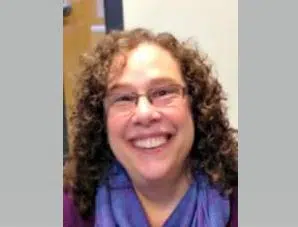PUBLISHED: 1st November 2016

I learned about my status as a BRCA2 mutation carrier in a brief phone call in August 2010, less than three months after losing my mom to exceedingly virulent triple negative breast cancer. When I asked the genetic counselor, through tears, what I should do, she said two things: “Call your gynecologist and go to the FORCE website.”
Forty-seven and at the time, the only known BRCA+ person in my family, I attended my first NYC FORCE meeting in December 2010, just a few weeks prior to my hysterectomy. It was extremely helpful (and emotional) to meet other BRCA+ women and hear their stories. I was especially awed by one of the coordinators, who told me she'd had a prophylactic mastectomy a few years earlier. To see her there, completely healed, normal in every way, and confident enough to talk openly and honestly about her mastectomy was incredibly inspiring and empowering.
Nonetheless, although breast cancer was never far from my mind, I couldn’t quite wrap my head around a mastectomy. I opted instead for surveillance, despite the fact that I was convinced that teeny, tiny, undetected cancer cells were growing wild in my body.
In April 2011, I had a baseline MRI that, according to my oncologist, "wasn't perfect," because it showed a few things that needed further study. Within a week, I had another MRI, an ultrasound, and a needle guided biopsy. Thankfully, everything was fine from all those tests, but that much poking and prodding in the course of only a week convinced me that I couldn't live the rest of my life enduring that sort of routine every six months. Within a few weeks, I had a breast surgeon, a plastic surgeon, and a date for a prophylactic bilateral mastectomy with DIEP reconstruction.
About a month before the surgery, I attended the annual FORCE conference, where, as in New York, I found myself surrounded by generous, real-world support from women who had been empowered to face their own BRCA challenges head-on by making tough decisions and, despite lingering physical and emotional scars, were moving forward with their lives, even as they were passing along to me what others previously had given to them.
My 12-hour surgery took place in July 2011, and was not without complications. About a month post-op, I developed an infection and necrotic tissue that had to be debrided, leaving a wound that required dressing changes several times each day for two months – and a lot longer to heal fully. Throughout my recovery, my BRCA sisters were there – visiting in my apartment, calling to check-in, and answering the many questions I posted on the message boards. Over time, I asked fewer questions and answered more, the first step in paying back the information, support, and resources so graciously and generously given to me when I needed them most.
Because we only learned of my mother's BRCA+ status after her death (and only because I tested positive), I often wonder what she and her doctors might have done differently had her status been known to them at the time she was diagnosed – or even at some point along the way. Could their actions and/or treatments have extended her life? Had she known of her status, would she have done the same things I did to protect myself from breast and ovarian cancer? Would she have been supportive of my surgery decisions?
Although I’ll never know the answers to these questions, they continue to haunt me from time to time. (More recently, my maternal aunt, a breast cancer survivor, tested positive for the same mutation I carry. Although I’m not a genetics professional, I believe she and my mom inherited it from their father, who died from metastatic prostate cancer in the mid-80s, about the time scientists were connecting the dots linking these diseases to heredity within families. One of my aunt’s sons – my cousin – has tested negative, but the other has yet to be tested. For the sake of his children, I hope he’ll do so soon.)
On the flip side, the unanswered questions in our family also fuel my commitment to raise awareness about BRCA mutations, particularly within the Ashkenazi Jewish community. If speaking and writing about my experiences, as well as volunteering with FORCE can help other BRCA+ women or prevent even one family from enduring what we did because we didn't know about the BRCA2 mutation lurking in our genes, I believe some good will come from our story and that my endeavors (and my mom’s death) will contribute in some small way to the Jewish concept of tikkun olam – repair of our world.